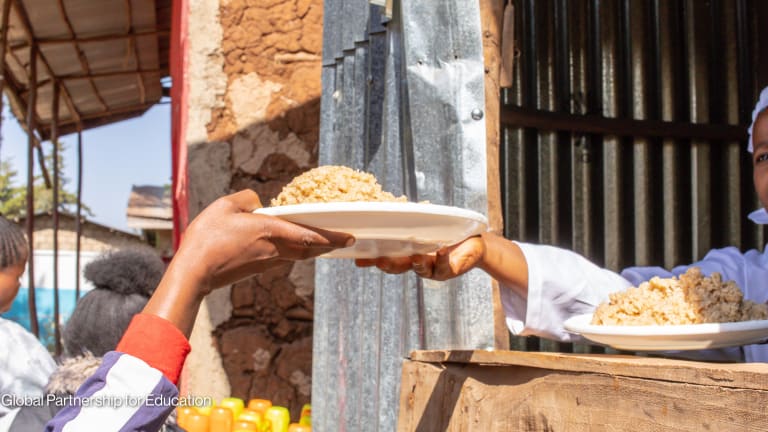
Editor's Note: Devex President and Editor-in-Chief Raj Kumar joined the board of directors of Nuru International, a nonprofit organization, in 2014.
Today, as we commemorate the United Nations International Literacy Day, we celebrate how literacy skills can transform lives — while remembering the millions still lacking access to literacy programs and calling for the international development community to keep pushing ahead.
Improvement in reading ability is slow and sometimes nonexistent amongst primary school-aged children in East Africa, according to the latest report from the Uwezo initiative that has been highlighting the problem of illiteracy since 2009. UNESCO’s 2015 Education For All Global Monitoring Report found that the Millennium Development Goals pertaining to literacy were not met and there are still 781 million adults who lack basic literacy skills.
Children in sub-Saharan African countries made the smallest gains in literacy rates of all regions from 2000 to 2015. While Goal 4 of the newly proposed sustainable development goals promotes quality education and learning opportunities for all, the first and most prominent goal is “to end poverty in all its forms everywhere.” Raising child literacy is critical to preventing the intergenerational cycle of poverty from starting again.
I spent the last year in the mountains of southern Ethiopia, overseeing the design of Nuru International’s education program. There, in Boreda Woreda, parents hand down land to their children, as is common in many countries where farming is the way of life. With land sizes shrinking and the population rapidly expanding — estimated to triple from 90 million to 278 million people by 2050 — I began to wonder, what future lies ahead for these children if they cannot farm for a living? Without a basic education, will these soon-to-be adults be able to provide for their families and escape extreme poverty?
While the answer to this question is bleak, if a child can read, those future career and livelihood opportunities might look quite different.
Reading is a foundational skill. Imagine not being able to read your science textbook or math word problems as a young third grader in a class of 60 students. Despite having inherently good analytical skills and even do addition and subtraction in your head, without knowing how to read the questions on the test or the homework from your textbook, the likelihood of you succeeding in that class is very low.
The ability to “read to learn” is the key to unlocking the potential knowledge and skills of children. In a 2011 report, the Early Grades Reading Community of Practice highlighted the necessity of catching kids in the early grades, particularly in Grades 1-3, before they progress through primary school without basic reading skills. Developing children’s reading skills prior to them choosing a career, livelihood path and starting their own families has a much greater potential for impact than working with adults whose livelihoods are, for the most part, already set, especially in rural areas.
There are many great examples of programs working to improve the reading skills of children living in extreme poverty: Save the Children’s Literacy Boost program combines teacher training with community action initiatives to involve the entire community in helping to improve children’s reading skills in Grades 1-3. The RTI International-designed and U.S. Agency for International Development-funded Tusome project in Kenya conducts training with Grade 1 and 2 teachers across Kenya to improve teaching practices and reform curriculum regarding how to teach literacy. Room to Read has established libraries in countries across the world giving young children opportunities to access reading materials.
Will these excellent programs, proven to improve literacy levels among children living in extreme poverty, be enough to break the intergenerational cycle of poverty?
The answer appears to be, yes, but not alone. In 2014, the Education for All research team estimated, “If all students in low-income countries left school with basic reading skills, 171 million people could be lifted out of poverty, which would be equivalent to a 12 percent cut in world poverty.”
At Nuru International, we recognize that improving child literacy is essential for ending intergenerational poverty, and it must be integrated with holistic programs — such as agriculture, financial inclusion and health — to address all of the basic needs of those living in extreme poverty. If we truly want to meet the first and biggest goal of the SDGs, the international development community must continue to support initiatives that improve child literacy skills and encourage cross-sector partnerships.
Join the Devex community and access more in-depth analysis, breaking news and business advice — and a host of other services — on international development, humanitarian aid and global health.




